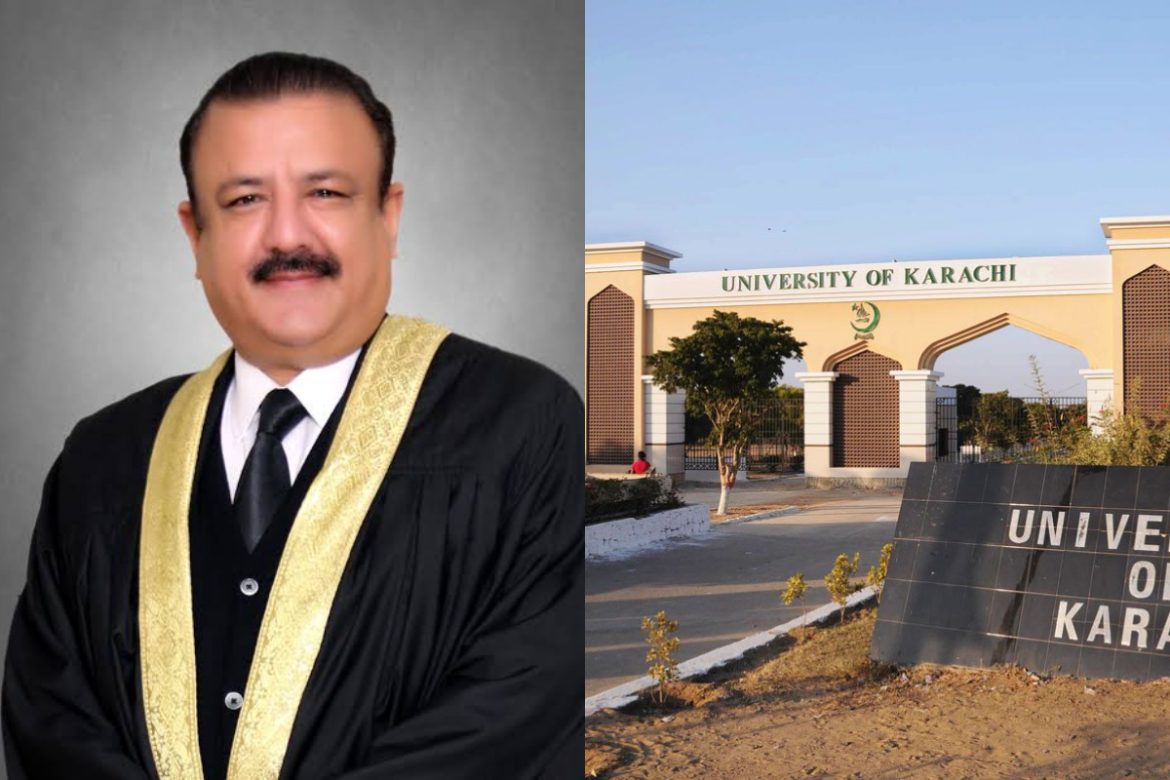Degree Cancellation Sparks Controversy
The University of Karachi has revoked the law degree of Islamabad High Court judge Justice Tariq Mehmood Jahangiri, citing allegations of academic misconduct. Alongside the cancellation, the institution has imposed a three-year ban preventing him from enrolling in or appearing for examinations at any university or college under its jurisdiction.
The decision, announced through an official notification, has stirred debate about judicial credibility, educational integrity, and the implications for Pakistan’s legal system.
Allegations of Irregular Enrollment
According to the notification, the University declared that Justice Jahangiri’s Bachelor of Laws (LLB) result and degree were null and void. The statement further clarified that he was never a regular student of Islamia Law College, Karachi, the institution through which he was purportedly enrolled.
The University accused the judge of relying on “unfair means” during his studies, though no detailed evidence was publicly disclosed in the notification.
Disciplinary Process and Syndicate Approval
The decision followed a recommendation by the University’s Disciplinary Committee, later ratified by the Syndicate, its highest decision-making body. The process reportedly took several months and was marked by legal challenges.
Earlier this year, a committee recommendation to cancel the degree had been suspended temporarily. However, the University has now formalized the ruling after completing internal proceedings.
Judicial Sensitivities and Recusals
The case has already drawn considerable attention in legal and academic circles. Given its sensitivity, at least one judge of the Sindh High Court recused himself from hearing related petitions.
Ongoing court proceedings could determine whether Karachi University’s decision withstands judicial scrutiny, as Justice Jahangiri is entitled to contest the cancellation.
Implications for Judicial Integrity
The move is being described by observers as both significant and controversial. It raises questions about the vetting of qualifications held by members of the superior judiciary in Pakistan.
The judiciary in Pakistan has long grappled with public perceptions of credibility and transparency. Allegations of misconduct, even outside the courtroom, can undermine confidence in the legal system. The cancellation of a judge’s degree—rare in Pakistan’s history—adds further complexity to these challenges.
Education Standards Under the Spotlight
The case also highlights broader concerns about the integrity of higher education in Pakistan. Universities have faced repeated criticism over lax oversight, irregular admissions, and academic malpractice.
In 2023, the Higher Education Commission of Pakistan (HEC) reported that it had investigated dozens of cases of degree fraud and institutional irregularities. Critics argue that cases involving high-profile figures, such as serving judges, show systemic weaknesses that need urgent reform.
What Comes Next
Justice Jahangiri continues to serve on the Islamabad High Court bench while the matter is under litigation. If the courts uphold Karachi University’s decision, legal experts suggest the development could have far-reaching consequences for his judicial career.
At the same time, the case underscores the importance of academic transparency, especially for individuals occupying public office. For Pakistan’s judiciary and universities alike, the outcome may set a precedent for how allegations of misconduct are handled in the future.















